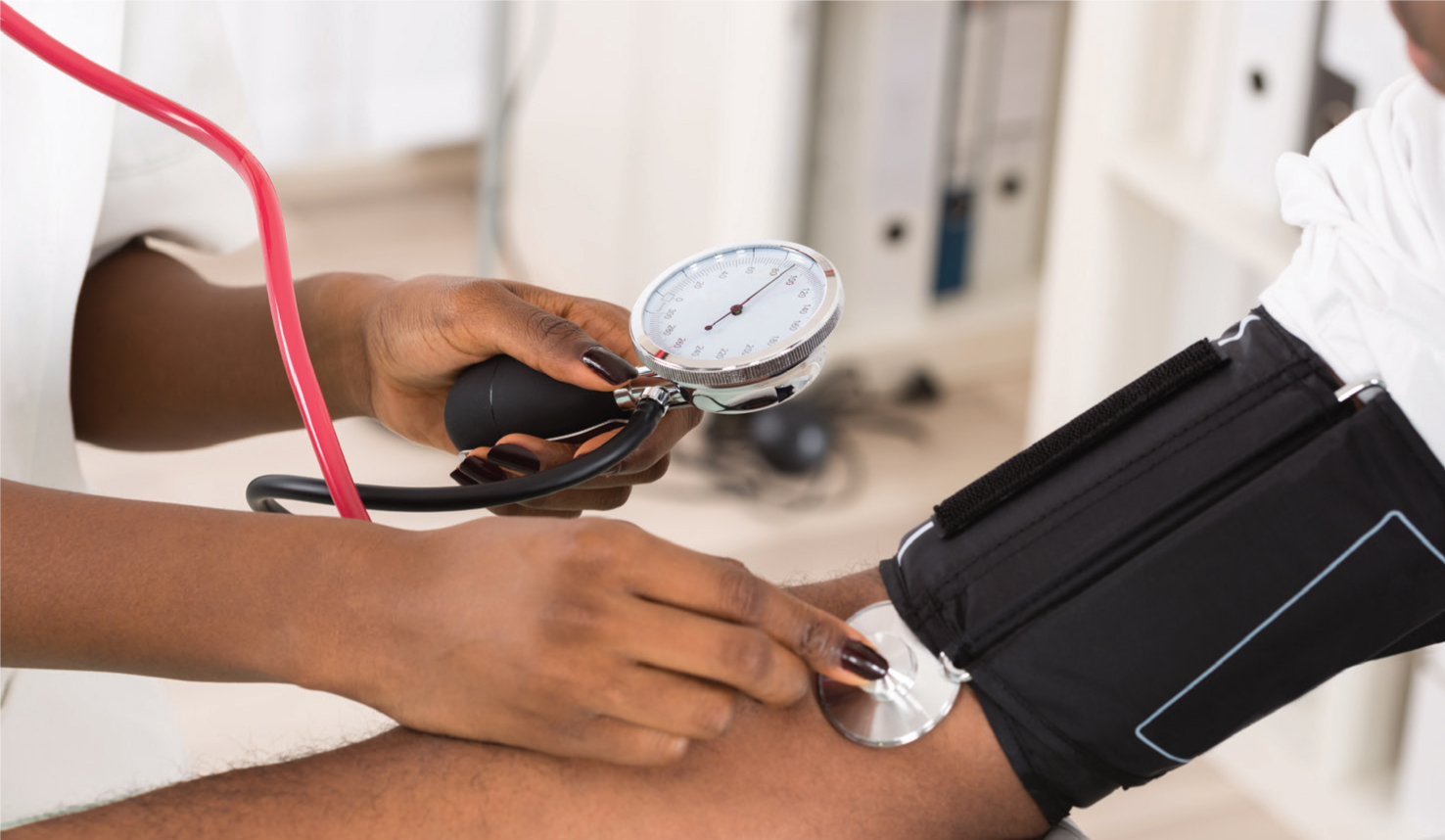High blood pressure is known as the silent killer as there are rarely any symptoms. High blood pressure is the biggest single cause of death in the UK. Over half of all strokes and heart attacks are caused by high blood pressure and it is a risk factor for heart disease, kidney disease and vascular dementia (Public Health England, 2017).
High blood pressure affects almost 1 in 3 adults in the UK (Public Health England, 2017), yet many people are unaware they have raised blood pressure. However, the good news is, high blood pressure is one of the most preventable and treatable conditions. Reducing blood pressure to normal levels reduces the risk of cardiovascular disease to the same level of someone without high blood pressure. It may surprise you, therefore, that many patients are undiagnosed and of those who are diagnosed, many are not treated or not controlled.
Nurse management of high blood pressure
Over the years, the role of nurses in blood pressure management has changed significantly. There has been a move away from nurses simply measuring, monitoring and charting blood pressure to specialist hypertension nurses who are trained to lead and manage all aspects of blood pressure care for patients, including detection, referral, and prescribing and managing medications. The National Institute for Health and Care Excellence (NICE, 2019) guidelines in the past few years have included home blood pressure monitoring to be used for confirming the diagnosis of hypertension by the doctors in clinics and surgeries.
Practice nurses and nurses on hospital wards, in the workplace (occupational health) and in the community regularly measure blood pressure in patients. It is the single most important physiological measurement made by nurses of all levels, with basic pathophysiology of hypertension included in nurse training. With appropriate training and regular updates, nurses are best placed to interpret blood pressure readings and act on any abnormal readings.
Multidisciplinary hypertension clinics (run by specialist nurses) now operate a clinical service where they not only identify, investigate and manage their patients' blood pressure but also take additional responsibility of empowering them to measure and monitor their own blood pressure at home. This is the main theme for this year's Know Your Numbers! Week. Together with lifestyle changes, this has been shown to lead to better blood pressure control. As a result, nurse-led hypertension clinics have become one of the most effective systems in improving blood pressure control in the NHS.
 Blood pressure is the single most important physiological measurement made by nurses of all levels
Blood pressure is the single most important physiological measurement made by nurses of all levels
Key skills for blood pressure management
Training a nurse to be proficient in blood pressure control is challenging, due to the broad area of expertise they must be able to show confidence in:
- How to measure blood pressure accurately, using validated manual and digital machines, use of appropriate cuff sizes and machine maintenance (Beevers et al, 2014; British and Irish Hypertension Society, 2020)
- Monitoring and assessing patients, how to act on the findings e.g. escalating unusual measurements to the senior nurse/doctor
- Knowing the blood pressure targets for different conditions (NICE, 2019)
- Having a basic knowledge of medications and side effects and appropriately advising patients on discharge
- Knowing how to manage home blood pressure monitoring and interpret the results
- Training the patient on how to use a home blood pressure monitor, how to record the reading and how and when to get the information to the surgery/clinic
- Knowing how to interpret 24 hour ambulatory blood pressure readings/home blood pressure readings and relate it to clinic/surgery readings and act on them when necessary
- Educating and supervising health care assistants on the importance of measuring blood pressure
- Advising health professionals and patients on lifestyle changes, e.g. reducing salt, eating more fruit and vegetables, maintaining a healthy weight, being more active and limiting alcohol consumption.
Nurses are perfectly placed to detect undiagnosed raised blood pressure and day to day unexplained variabilities of blood pressure, interact with patients and advise on implementing necessary lifestyle changes. When treating with tablets, nurses should understand the mechanisms of how the drugs work, the importance of tablet compliance and how to recognise and deal with possible side effects.
Research has shown that nurses contribute a great deal towards lowering blood pressure and thereby reducing the incidence of stroke and heart attack in UK.
For more information visit: Blood Pressure UK www.bloodpressureuk.org – the only charity solely dedicated to lowering the nation's blood pressure to prevent disability and death from stroke and heart disease.

